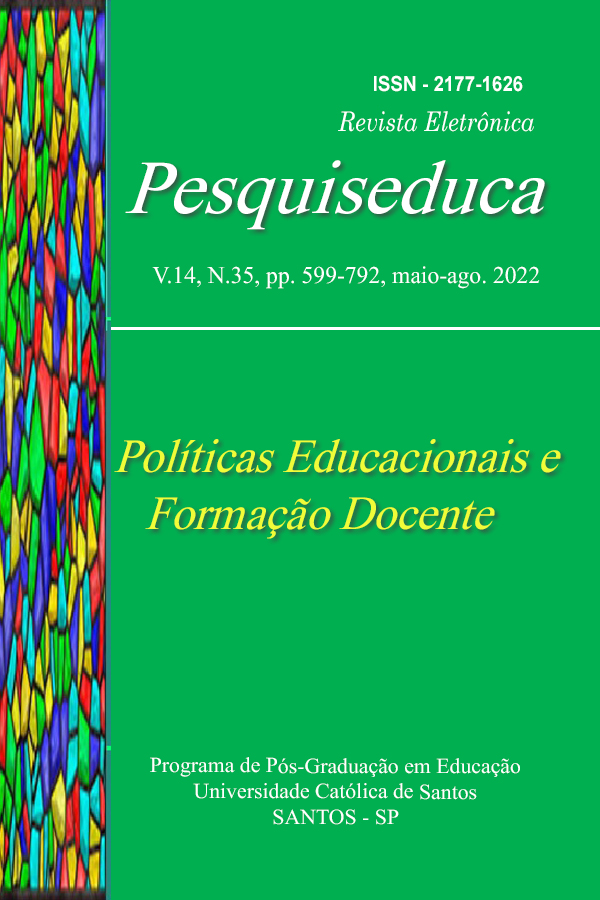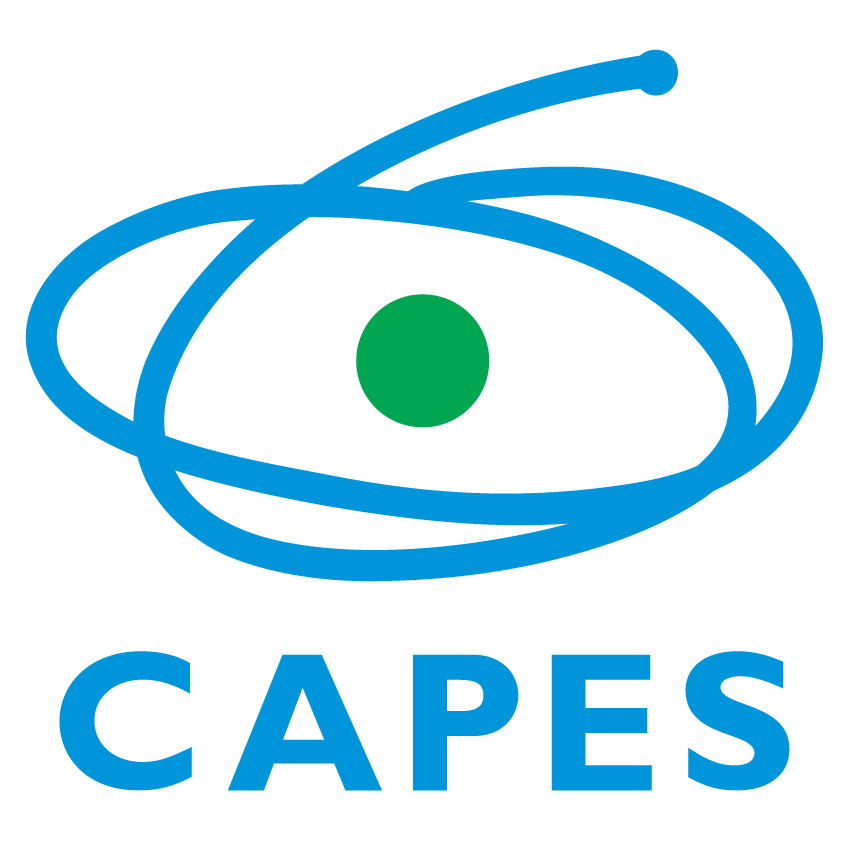Trabalho Docente por Projetos
perspectivas da comunicação e as metodologias de ensino no contexto de novas tecnologias
DOI:
https://doi.org/10.58422/repesq.2022.e1300Palavras-chave:
Novas Tecnologias, Comunicação, Educação, Trabalho DocenteResumo
Este artigo trata de um estudo sobre novas tecnologias, comunicação educacional e metodologia de ensino por projetos. Justifica-se o interesse neste tema, porque as metodologias didáticas no processo de ensino e aprendizagem, frente ao avanço acelerado das novas tecnologias digitais, estão entre os maiores desafios do docente, além de sua atualização contínua em relação ao conteúdo. Para tanto, o estudo fundamenta-se em discussões teóricas sobre a tecnologia e educação, considerações da Educomunicação e saberes docentes quanto à metodologia de ensino por projetos. Os objetivos são apresentar ideias teóricas sobre o uso das novas tecnologias no contexto escolar; evidenciar a importância das interações de linguagens e da comunicação no processo de ensino e aprendizagem e compreender seus impactos na construção dos saberes docentes, quanto à metodologia de ensino por projetos. Para o desenvolvimento desta discussão, a metodologia baseia-se em pressupostos da pesquisa bibliográfica, de abordagem qualitativa, e análise temática de métodos de trabalho docente por projetos.
Referências
APARICI, Roberto; OSUNA, Sara. Educomunicação e cultura digital. In: APARICI, Roberto (org). Educomunicação: para além do 2.0. São Paulo: Paulinas editora, 2014, p.317-328.
ÁREA, Manuel. La educación en el labirinto tecnológico. De la escritura a las máquinas digitales. Barcelona, Octraedro, 2009.
ARTUSO, A.R.; MACIEL, P.D. Trabalho por Projetos na Educação Profissional e Tecnológica: um panorama de diferentes visões. Revista Contexto e Educação. Ano 35. Nº112. Set/Dez 2020. Disponível em https://www.revistas.unijui.edu.br/index.php/contextoeducacao/article/view/9890 Acesso em: 11 maio 2021.
BRASIL, Secretaria da Educação Básica. Base Nacional Comum Curricular, BNCC. Brasília: MEC, 14 de dezembro de 2018. Disponível em http://basenacionalcomum.mec.gov.br/images/BNCC_EI_EF_110518_versaofinal_site.pdf Acesso em: 10 fev. 2020.
FREIRE, P. Educação e Mudança. 25 ed. Rio de Janeiro: Paz e Terra, 1979.
HERNANDEZ, F; VENTURA, M. A organização do currículo por Projetos de trabalho. Porto Alegre: Artmed, 1998.
KAPÚN, Mário. Uma pedagogia da comunicação. In: APARICI, Roberto (org). Educomunicação: para além do 2.0. São Paulo: Paulinas editora, 2014, p. 59-78.
LÉVY, P. Cibercultura. São Paulo: Editora 34, 1999.
LOPES, Rovena Monteiro. A Pedagogia de Projetos. 2012. Disponível em: https://pedagogiaaopedaletra.com/resumo-a-pedagogia-de-projetos/ Acesso em: 13 set. 2021.
LÜDKE, M. O trabalho com projetos e a avaliação na educação básica. In: SILVA, J. F.; HOFFMANN, J. M. L.; ESTEBAN, M. T. (org.). Práticas avaliativas e aprendizagens significativas: em diferentes áreas do currículo. 5. ed. Porto Alegre: Mediação, 2007.
MARCHIORI, Marlene. Cultura e Comunicação Organizacional. São Paulo: Difusão, 2006
MATTELART, Armand; MATTELART, Michele. História das teorias da comunicação. Edições Loyola. São Paulo, 1999.
MOURA, Adelina. A educação ubíqua na era digital móvel: reconfiguração dos espaços de aprendizagem. In BONINI, Luci Mendes Melo; SARTORELLO, Ricardo; SCABBIA, Renata Jimenez (orgs). Dinâmicas Sociais e desenvolvimento local. Curitiba-PR: Editora CVR, 2017, p. 151-188. DOI 10.24824/978854441394.4
OLIVEIRA, Ramon. Informática educativa. São Paulo: Papirus, 2000.
PIAGET, Jean. Para Onde Vai a Educação. 16 ed. Rio de Janeiro. José Olympio, 1973
PRETTO, N.; PINTO, Cláudio C. Tecnologias e novas educações. Revista Brasileira de Educação, vol. 11, n. 31, 2006. Disponível em https://www.scielo.br/pdf/rbedu/v11n31/a03v11n31.pdf. Acesso em: 21 jun. 2020.
TARDIF, M. Saberes docentes e formação profissional. 16. ed. Petrópolis, RJ: Vozes, 2014
XAVIER, Antonio C. S. O Hipertexto na Sociedade da Informação: a constituição do modo de enunciação digital. Tese de doutorado Unicamp. 2005. Disponível em http://repositorio.unicamp.br/jspui/handle/REPOSIP/269080 Acesso em: 20 jun. 2020.
Downloads
Publicado
Como Citar
Edição
Seção
Licença

Este trabalho está licenciado sob uma licença Creative Commons Attribution 4.0 International License.
Revista Eletrônica Pesquiseduca, Revista do Programa de Pós-Graduação em Educação - Universidade Católica de Santos (ISSN: 2177-1626) é detentora dos direitos autorais de todos os artigos publicados por ela. A reprodução total dos textos em outras publicações, ou para qualquer outro fim, por quaisquer meios, requer autorização por escrito do editor. Reproduções parciais de artigos (resumo, abstract, mais de 500 palavras de texto, tabelas, figuras e outras ilustrações) deverão ter permissão por escrito do editor e dos autores.










